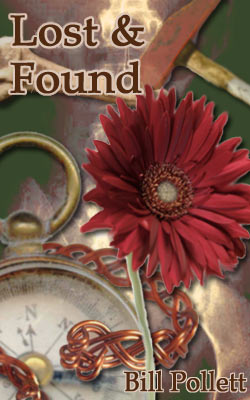 One of the things I most enjoy about autumn living in the city of Vancouver is the way it so often seems to offer a pre-taste of the long-prophesied apocalypse. In the space of a one, three or four week span, for instance, we “Wet Coasters” have experienced a variety of seemingly apocalyptic omens. We have seen the sky turn carbon-paper black, pouring upon our hood-shrouded heads a deluge of enough icy cold rain to drown cats and dogs, nearly submerge the family automobile, and create puddles large enough to have their own tidal systems.
One of the things I most enjoy about autumn living in the city of Vancouver is the way it so often seems to offer a pre-taste of the long-prophesied apocalypse. In the space of a one, three or four week span, for instance, we “Wet Coasters” have experienced a variety of seemingly apocalyptic omens. We have seen the sky turn carbon-paper black, pouring upon our hood-shrouded heads a deluge of enough icy cold rain to drown cats and dogs, nearly submerge the family automobile, and create puddles large enough to have their own tidal systems.
Despite having whole inland seas-worth of liquid unleashed from above, we have also experienced a prolonged “boil water” advisory. If you had turned on any tap in the city during that period, you would have been able to fill a glass with water that must resemble the original primordial ooze from which life first developed. This, of course, caused roaming tribes of yuppies to attempt to eviscerate each other in the aisles of IGA and Safeway, fighting over the last few available bottles of Dasani and Evian.
Following this, we had a massive dump of snow — enough to close roads, cripple our transit system, bring down power lines and cable lines, and shutdown the University of British Columbia. There were trolley buses stranded for days on end in the middle of the boulevard. In the middle of the week, there were office buildings and shopping centres quiet as Tibetan monasteries, silent as midnight graveyards.
There is something truly beautiful and eerie about a city caught in the grip of strange days. People slow down a little bit in their mad-ass dash to and from places. Time seems somehow more flexible. On our street, with the streetlights and houselights’ power knocked out, the trees were ghostly, encased with ice, illuminated by the moon, and like shining flashlights for the people passing by. With no electric lights, no stereo, Internet, DVDs or radio, we resorted to playing board games by the light of candles and an oil lantern. Our daughter entertained us by playing the violin. It was like something out of the nineteenth century.
When people aren’t bashing each other over the head for dwindling supplies, they sometimes tend to look out for each other a bit more. They help dig each other’s vehicles out of snowdrifts. They offer to drive each other around, and look after each other’s kids. They take a few extra minutes to share stories with each other, leaning on shovels or pausing between emptying buckets of flood water. Perhaps sensing that this sort of thing is a prelude of catastrophes waiting for us just around the corner, they are more willing to lean on others and be leaned on as well.
